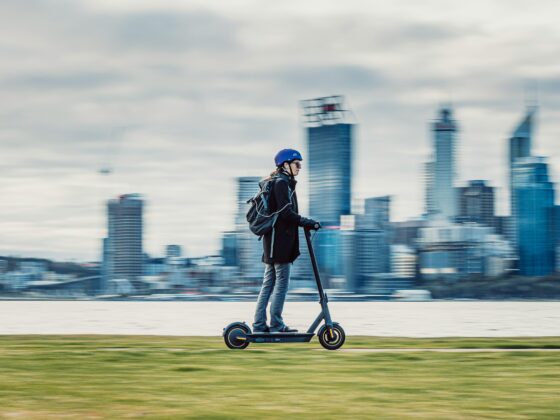
Business travel is back.
That’s right – after a period of instability during the pandemic, our research indicates business travel spending is poised to exceed 2019 levels this year at $1.5 trillion. But as we look at the current and future state of business travel, we aren’t just taking our same pre-COVID business trips. In fact, we’re looking at a whole new era of business travel – one defined by the near absence of the one-day business trip – and the deluge of questions that go along with it:
- How are we defining business travel in a post-pandemic world?
- What does it mean to be a business traveller in 2024 and beyond?
- Is the demise of the one-day business trip a good thing?
The rise of the multi-day business trip
For as long as I’ve known, one of the main narratives around business travel has been how to ‘survive’ it. This is particularly the case when looking at one-day trips involving flights, which can be exhausting for travellers. Early morning departures, late night returns and the potential for delays along the way can wreak havoc on our productivity and negatively impact our physical and mental health.
Given the break from most business travel during the pandemic (except, of course, for essential travel), the recovery period has inspired people and companies to look at different ways of engaging with business travel. Confirmation of this is in the 2024 GBTA Business Travel Index Outlook – Annual Global Report and Forecast, our most comprehensive survey data and analysis. Released in July and based on the responses from 4,100 business travellers across five global regions, the report found they rated the one-day trip as the least popular in terms of length.
However, just because the one-day business trip is no longer prevalent does not mean that business travel has stopped. Rather, it has evolved to prioritise more thoughtful, productive, sustainable trips that consider both traveller wellbeing and the effect on the environment.
Therefore, it’s not surprising that our data now shows business trips of three to five days in length are actually the most popular, constituting 40 percent of business travel. Two-night stays were the next most popular at 32 percent (for comparison, one-day business trips ranked at only five percent). These longer trips optimise productivity and enable travellers to get more out of each trip, both professionally and personally. In fact, since we have seen this shift, people are travelling more than they did before the pandemic, when one day travel was more commonplace.
This is an incredibly important shift, not just for business travel, but for the travel and associated industries as well. With these longer trips – which travellers are increasingly likely to blend with leisure – hoteliers, tour operators, regional attractions and other hospitality businesses in these destinations can dramatically increase revenue and even cultivate opportunities for return visits.
More economically sustainable
There are operational reasons for this shift away from one day business travel, too. Our research uncovered that while travel spend has stabilised, returning to 2019 levels, the price of business travel has increased. As a result, one day trips have become less economically viable for many companies.
What’s more, one day trips are the most heavily affected by disruption of any type of travel. While airlines, airports and ground handlers work tirelessly to minimise the impact of this, it is increasingly becoming more commonplace with air travel.
When you consider the expense, vulnerability to disruption and associated drain on productivity – as well as the likely negative impact of wellbeing – one day business travel might not be the most efficient way to reach business goals. Despite business travellers generally being the most resilient in the face of disruption, the productivity and financial impacts no longer make it practical.
Driving sustainability and maximising carbon
There are environmental factors to consider as well. The aviation industry is one of the hardest industries to decarbonise currently, but starting the sustainability journey across that and other travel sectors is critically important. Companies as well as business travellers are becoming increasingly aware of this.
Looking at our data, over 70 percent of companies are now implementing sustainability initiatives within their travel policies, and we’re seeing behaviours change as a result. Companies are opting to book their business travellers into airline economy seats or on trains to save money and carbon emissions, and many are putting major restrictions on one-day business travel due to sustainability concerns. As we help more companies develop, execute and refine sustainable travel strategies, we expect these types of interventions to further shape the way they view the one-day business trip’s feasibility.
Travellers themselves are becoming more aware of the environmental implications of their travel, too, wanting to minimise their emissions. According to our research, this is a big driver as to why travellers now prefer longer trips, followed by exploring new destinations and prioritising wellbeing.
Rethinking the modern business traveller
There are other, new motivations for travel which also explain the shift away from one-day business trips and reflect changing attitudes towards business travel as a whole. The archetype of the businessman, shuttling between financial capitals around the world wearing a power suit and briefcase in hand, is no longer accurate.
Today’s traveller demographic is diverse, with equally diverse motivations for business travel. Junior professionals are telling us it’s an opportunity to advance their careers and network with senior executives. We’re finding younger generations view business travel as not just a necessity for conducting business, but an opportunity to forge connections and share ideas with colleagues outside their localities – and gain a broader view of the world. Women business travellers are more likely than men to “blend” their trips with business and personal aspects.
Increased flexibility enabled by multi-day trips, as well as the opportunities it presents, is contributing to a healthier approach to travel, reducing the exhaustion that was once synonymous with short, hectic trips.
The end of the one-day business trip is not just a trend – it represents a fundamental shift in how we view and engage with corporate travel.
With the stabilisation of business travel comes its evolution, and this shift represents exciting opportunities for the travel industry. The business travel industry will continue to thrive as its evolution caters to an ever growing, increasingly diverse and sustainability-minded demographic.
– ends –






